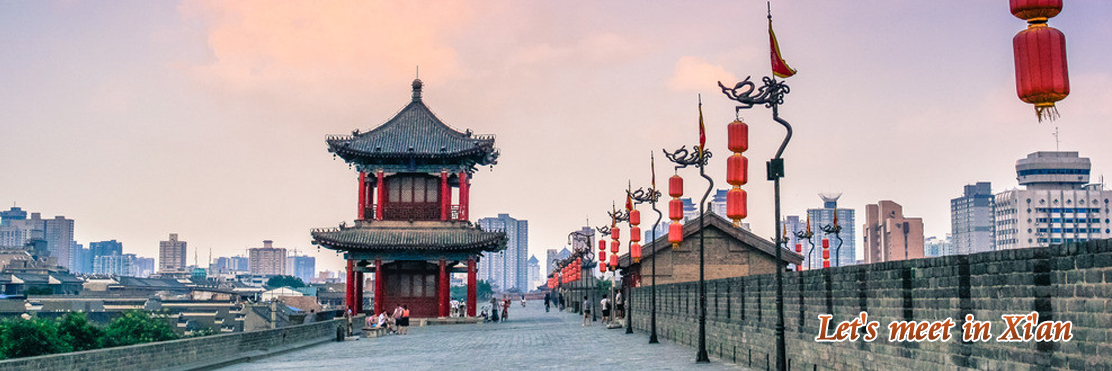Xi'an
Origin of the City's Name
As far back as 1,046 B.C, the first nationwide political authority in China was founded by Zhou Wenwang and Zhou Wuwang of Western Zhou dynasty, setting up the capital in Fenghao(Present-day Xi'an). During the early period of Western Han dynasty in 206 B.C, Liu Bang set up capital in Chang'an( Present-day Xi'an), carrying the meaning of eternal peace. The name of capital Chang'an lasted 1,100 years until 907 A.D in late Tang dynasty. After the doom of Tang dynasty, Xi'an was renamed Jingzhao Fu( in Later Tang dynasty), Shaanxi Lu(in Song dynasty), Anxi lu and Fengyuan Lu( in Yuan dynasty) and had played the role of a political, economic and cultural center in the northwest region of China. In the spring of 1369, the year after Ming dynasty was established, Xuda conquered Fengyuan Lu and changed the city's name into Xi'an, carrying the meaning of stability in the northwest region. The name lasted up till today.
Contemporary History
May 20, 1949 celebrated the liberation of Xi'an city. Upon the founding of the People's Republic of China, Xi'an was chosen as the headquarter for the Northwest Bureau of the Central Committee of the CPC and the Northwest Administrative Committee respectively and a city directly under the jurisdiction of the Central Government. In 1954, it turned to be the capital city of Shaanxi Province and was listed under separate state planning in 1984. In 1992, it was approved as an opening city of inland China. In 1994, Xi'an was authorized to be the national comprehensive supporting reform pilot city and a sub-provincial city. Having undergone over more than 60 years of development, a complete industrial system and urban service system have taken shape. Xi'an has become the key scientific research, higher education, national defense and hi-tech industrial base in China. It also plays the role of a hub of finance, science and technology, education, tourism, and trade in the mid-western region of Northern China.
Capital City of 13 Dynasties
Historically, 13 dynasties had established their capitals in Xi'an, including Western Zhou Dynasty, Qin Dynasty, Western Han Dynasty, Xin Dynasty, Eastern Han Dynasty (Emperor Xian), Western Jin Dynasty (Emperor Min), Former Zhao, Former Qin, Later Qin Dynasty, Western Wei Dynasty, Northern Zhou Dynasty, Sui Dynasty and Tang Dynasty.
The time span of Xi'an serving as Chinese ancient capital adds up to 1,129 years.
Important Dates
May 15, 2018
May 27-29, 2018


 京公网安备 11010802039275号
京公网安备 11010802039275号